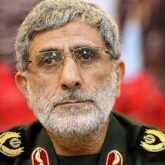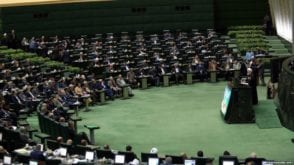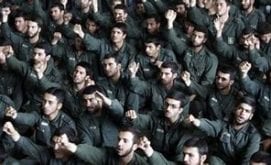Al-Monitor – Iran’s Finance Minister Ehsan Khandouzi landed in the Saudi city of Jeddah on Thursday, two months into a Chinese-brokered deal that ended a seven-year hiatus in Tehran-Riyadh relations.
According to the state-run IRNA news agency, the minister will discuss bilateral trade while also delivering speeches at a summit of the Islamic Development Bank in Jeddah.
As the first Iranian official to visit Saudi Arabia after the recent thaw, Khandouzi had earlier spoken of his plans to push for a joint Iran-Saudi Arabia chamber of commerce and an ambitious $1 billion target in annual bilateral trade.
Under the surprise rapprochement signed March 10, the two regional heavyweights agreed to reopen embassies in their respective countries within two months, a timeframe that appears to have been already missed.
In the latest, Iran’s Foreign Minister Hossein Amir-Abdollahian told the state broadcaster on Thursday that the Saudi side had appointed its ambassador to Tehran, while a decision on the Iranian envoy is to be finalized “in the days to come.”
Earlier on Monday, the spokesman for Iran’s Foreign Ministry, Nasser Kanaani, cited practicalities and “maintenance” issues in explaining Iran’s delay in the reopening of its Riyadh embassy as well as its consulate in Jeddah.
An international desk reporter at the semi-official ISNA news agency, Akram Ehghaghi, tweeted that the Iranian Embassy will “most likely” be inaugurated next week, with the mission expected to be headed by Alireza Enayati, who is currently directing the Persian Gulf Region office at Iran’s Foreign Ministry.
Over the past two months, Iranian authorities and state media have struck an unprecedented upbeat tone on the thaw with Saudi Arabia, marked by an obvious departure from their characteristic anti-Saudi rhetoric, as they celebrated the “fury” of the United States and Israel over the agreement.
During the same period, Iranian and Saudi officials have established multiple lines of communication, according to Iranian reports. Also in April, the two foreign ministers met up in Beijing, where the initial agreement had been clinched.
Little, however, has been made public on how precisely the former two foes are to work out their long-standing thorny issues, on top of which is Tehran’s backing for such Shiite proxies as the anti-Saudi Houthi rebels in Yemen and the Hezbollah movement in Lebanon.
 Shabtabnews In this dark night, I have lost my way – Arise from a corner, oh you the star of guidance.
Shabtabnews In this dark night, I have lost my way – Arise from a corner, oh you the star of guidance.



